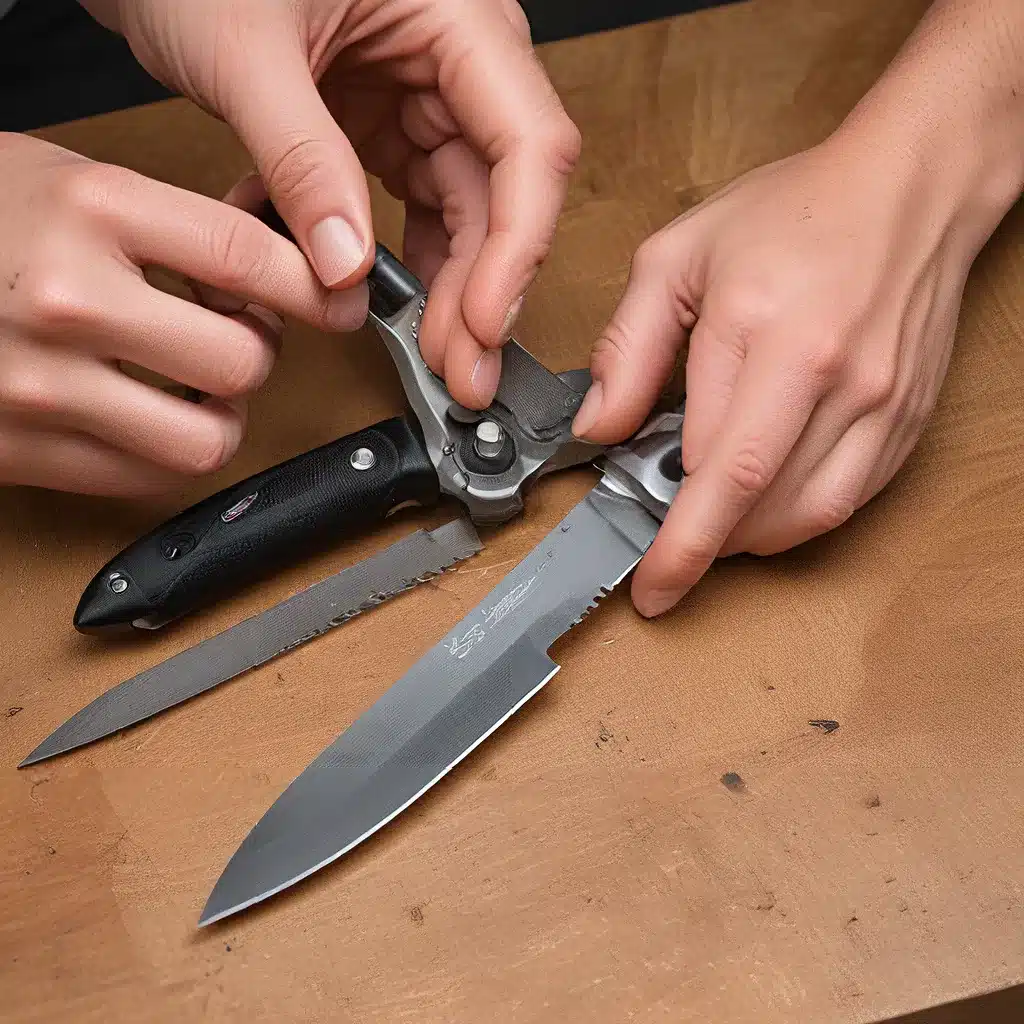
Ah, the perpetual quest for the perfectly sharp knife – it’s a journey many of us passionate home cooks and outdoor enthusiasts find ourselves on. We scour the internet, read reviews, and listen to the advice of so-called “knife experts,” all in pursuit of that elusive cutting edge that glides through ingredients like a hot knife through butter. But the harsh reality is that no matter how expensive or well-crafted a knife may be, it will eventually lose its razor-sharp bite. The question is, how can we make that precious sharpness last as long as possible?
The Myth of Expensive Knives
Let’s start by busting a common myth – that expensive knives retain their sharpness for longer. While it’s true that high-quality, well-made knives generally hold an edge better than their cheaper counterparts, the difference isn’t as dramatic as you might think. According to experts, the material composition and manufacturing process of a knife play a bigger role in edge retention than the price tag alone.
For example, knives made from high-carbon steel tend to maintain their sharpness longer than those crafted from stainless steel. The trade-off, of course, is that high-carbon steel is more prone to corrosion and discoloration. Meanwhile, knives with a finer, more acute edge angle will stay sharper for longer, but they also require more maintenance and care to prevent chipping or rolling.
So while splurging on a premium knife can be a worthwhile investment, it’s not a guarantee that your blade will stay razor-sharp indefinitely. The real secret lies in proper maintenance and storage – techniques that can benefit any knife, regardless of its price or pedigree.
The Essentials of Knife Care
Maintaining a sharp knife is a bit like maintaining a healthy relationship – it takes regular attention and effort. But fear not, the steps involved are surprisingly simple and straightforward. Here are some of the key practices that can help prolong the sharpness of your knives:
1. Proper Cleaning and Drying
One of the most common enemies of a sharp knife is corrosion and rust. When moisture and metal interact, it’s a recipe for dull, pitted blades. That’s why it’s crucial to thoroughly clean and dry your knives after each use.
Start by rinsing the blade under warm, soapy water, taking care to remove any food debris or residue. Then, use a clean, lint-free cloth to gently pat the blade dry. Avoid letting the knife air dry, as water droplets can linger and cause spotting or oxidation.
2. Careful Honing and Sharpening
Sharpening a knife is a delicate balancing act – you want to keep the edge keen, but you don’t want to grind it down too aggressively and shorten the blade’s lifespan. The best approach is to hone your knives regularly with a sharpening steel or ceramic rod, which helps realign the edge without removing much material.
When it’s time for a full sharpening, consider investing in a high-quality sharpening system, such as a manual or electric sharpener, or even take it to a professional. Improper sharpening techniques can actually damage the blade, so it’s worth taking the time to learn the proper method or entrusting the task to an expert.
3. Thoughtful Storage and Handling
Where and how you store your knives can also have a significant impact on their longevity. Avoid tossing them haphazardly into a drawer, where the blades can collide and become nicked or chipped. Instead, invest in a dedicated knife block, magnetic strip, or protective sheath. These storage solutions help keep the edges protected and prevent accidental damage.
When it comes to handling your knives, be mindful of your grip and cutting technique. Maintain a firm, confident hold, and use a clean, stable cutting surface. Avoid cutting on hard surfaces like granite or stone, which can dull and chip the blade over time.
4. The Power of Oiling
While it may seem counterintuitive, applying a thin coat of food-safe oil to your knife blades can actually help preserve their sharpness. The oil creates a protective barrier that repels moisture and prevents corrosion. Opt for a light, neutral oil like mineral oil or food-grade mineral oil, and reapply it periodically, especially after washing and drying your knives.
Embracing the Imperfect Edge
Now, I know what you’re thinking: “But won’t all this maintenance and upkeep just become a huge hassle?” And to be honest, you’re not wrong. Keeping a knife in pristine, razor-sharp condition does require a certain level of diligence and commitment.
However, I would argue that the rewards far outweigh the effort. A well-cared-for knife not only performs better, but it also becomes an extension of your culinary skills and a source of pride. Plus, with a little practice, the maintenance routines can become second nature, seamlessly integrated into your cooking workflow.
And let’s be real – even the sharpest knife in the world won’t stay that way forever. Accepting that fact and embracing the inevitable dullness that comes with use can actually free you up to enjoy the process of knife care and sharpening. It’s a constant dance between you and your blade, a relationship that requires nurturing and attention.
So, the next time your favorite chef’s knife starts to lose its edge, don’t despair. Instead, see it as an opportunity to reconnect with your tools, hone your sharpening skills, and maintain that cutting edge for as long as possible. After all, a well-cared-for knife is a true kitchen companion, one that will serve you faithfully for years to come.
And if you’re in the market for a new knife that can withstand the test of time, be sure to check out the high-quality offerings from Herman Knives. Their commitment to craftsmanship and attention to detail is sure to provide you with a blade that will stay sharper for longer.


